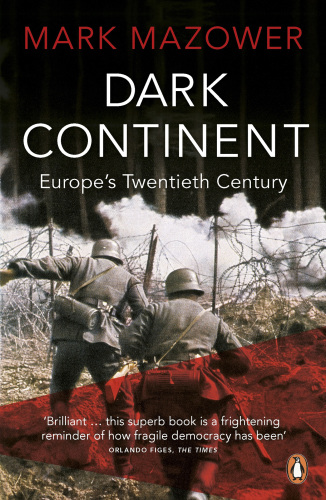
Dark Continent
Europe's Twentieth Century
کتاب های مرتبط
- اطلاعات
- نقد و بررسی
- دیدگاه کاربران
نقد و بررسی

January 4, 1999
Mazower (Inside Hitler's Greece) shapes his well-written history of Europe's 20th century as a struggle among liberal democracy, communism and fascism. Avoiding the pitfalls of Marxist interpretation on the one hand and capitalist triumphalism on the other, he shows how the failure of liberal democracy after WWI led to the experiment with fascism, which was defeated (principally by the Communists) at an enormous cost. In the first half of this century, he writes, between 60 million and 70 million Europeans died violently in wars or civil unrest, but the figure for the period after the defeat of fascism is under one million. Mazower takes this as evidence that the Cold War was a social and economic, rather than a military, conflict. While this may be true of the Cold War in Europe, the assertion fails to take into account the proxy wars fought by the superpowers in Asia, Africa and Latin America. But this omission doesn't detract from the overall excellence of Mazower's work. The defeat of fascism and the fall of communism have left the field to liberal democracy, which is now faced with the problem it failed to solve in the beginning of the century: how to create a workable relationship between capitalism and representative government. Mazower argues that Europeans can best work this out if they realize that their national differences are greater than any common culture and that Europe has enjoyed its greatest period of peace and prosperity precisely during the period in which it has lost its primacy in world affairs. Maps. Tables not seen by PW.

























دیدگاه کاربران